“How is the Trump Administration’s America First policy going to impact my supply chain?”
That’s a question our clients have been trying to answer since last year when, during the campaign for president, Donald Trump discussed his aim to renegotiate and overhaul the North American Free Trade Agreement (NAFTA) and withdraw from the Trans-Pacific Partnership (TPP). He vowed to begin levying additional duties and tariffs on goods from foreign countries.
This past April, the president signed an executive order entitled Buy American, Hire American, which did little to settle the issue or answer the question: “How do we plan and recast our business if financial pressure on our supply chain overwhelms our ability to do business in our current market?”
If your business is international and your supply chain relies on goods and services from abroad, you have every reason to wonder about the impact of an America First policy on your ability to remain competitive. In the auto industry, for example, the thousands of parts that go into the construction of a vehicle are sourced from all over the world. If the cost of those parts is increased to offset new tariffs, and they are not purchased domestically, who but the consumer will pay? The manufacturer will — if their prices become uncompetitive and they are unable to secure replacement sources domestically.
“Don’t just wonder what will happen,” advises Dan Cser, ICAT Logistics Detroit owner and a 30-year veteran in the supply chain trenches. “Now is the time to look for contingencies. One of the most significant problems we face in our business is uncertainty.
“If we know our foundation may be shifting, we should make an inventory of possible supply problems and create a plan in case the regulatory changes begin to dramatically impact our bottom line.”
Despite the America First rhetoric and warnings of shifting tides around international trade, supply chain managers still don’t know when or if they’ll need to change buying or manufacturing habits.
“Creating a contingency plan is always a good idea,” Cser said. “We do it all the time at ICAT Logistics Detroit, even during periods when supply chains appear to be more stable. Change is inevitable in our business, only its causes may vary. The weather, politics, regulations, service and price can each compel us to look for new supply routes or partners. Rather than panic at the last minute, we keep our options open so that we can make a change that benefits our clients and is well planned and executed.”
Know in advance if near- or on-shore options are practical. Does regionalization made sense for your business? Will it reduce your overhead and ability to deliver quicker and more efficiently?
“We can’t answer all of your questions, but as your transportation, freight and logistics partner, ICAT Logistics can help you plan more strategically and will work with you as you seek to mitigate the big risks of not knowing what’s around the corner for your supply chain,” Cser said.
We’re your custom shipping resource. Solutions to our customers’ most challenging issues are derived from decades of success in global logistics. https://www.icatlogisticsdtw.com/

